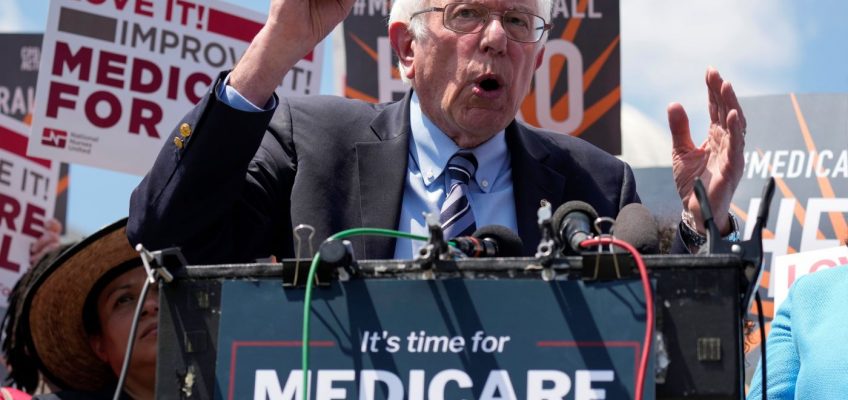Progressives’ entire rationale for “Medicare for All” is based on a lie. Or rather, two lies.
They assert that Americans are both dissatisfied with the health insurance status quo and that a single-payer system would eliminate that dissatisfaction.
But according to recent polling, neither claim is true. Americans are broadly happy with the existing health insurance system. And single-payer would manifestly worsen — not solve — the problems Americans do face under the status quo.
Senator Bernie Sanders, I-Vt., aptly summarizes the progressive viewpoint. He recently described the current insurance system as “totally broken, dysfunctional and cruel.”
So he’d no doubt be surprised by the results of a new nationwide survey commissioned by my organization, the Pacific Research Institute, which found that 90% of Americans are “very” or “somewhat” satisfied with their current health insurance plan — an increase of four percentage points from last year’s poll. Asked to rate their coverage, three-quarters of respondents said it was “good” or “very good.”
Sanders has also argued that his Medicare for All Act is “legislation which ordinary Americans want” that “would make life a lot easier for the American people.” But in reality, just 16% of respondents say they would “definitely” support a switch to single-payer.
Among the minority of respondents who are dissatisfied with their current insurance, the top complaint is limited access to specialist doctors. The second-most common complaint was limited access to a primary care physician.
Such dissatisfaction would surge after a government takeover. Just look at the dysfunction in the Canadian and British single-payer systems.
Sanders and other progressives have long praised the healthcare system in Canada, where private health insurance for anything deemed medically necessary by the government is illegal. Yet nearly half of Canadians lack reliable access to a family doctor, compared to less than one-third of Americans. About 70% of Americans are confident they could access urgent care in an emergency. Only 37% of Canadians said the same. Overall, twice as many Americans as Canadians report having “comfortable” access to healthcare.
In Britain, meanwhile, fewer than three in 10 people say they are satisfied with the 75-year old government-run National Health Service. Britons pointed to long waiting times — 7.6 million people were on waiting lists for care in England as of June — and severe staff shortages as the main reasons for their dissatisfaction. Their concerns are well-founded, given that ongoing doctors’ strikes have caused the cancellation or postponement of nearly 1 million appointments.
Wait times for treatment are at an all-time high in Canada. Last year, the median wait between referral by a general practitioner and receipt of treatment from a specialist was more than 27 weeks. To clear the backlog, officials in several provinces are turning to private, for-profit clinics that operate outside the conventional publicly funded system.
Some Canadians have begun traveling to the United States for urgent surgeries. In fact, health officials in British Columbia sent hundreds of cancer patients across the border to Washington state for treatment earlier this summer.
In Britain, private healthcare providers and insurers have recently experienced significant gains in popularity among those stuck on waiting lists for specialized treatments.
The American health insurance system is not perfect. But the proverbial grass is not greener north of the border — or across the Atlantic. A complete government takeover of the U.S. healthcare systems, a la Medicare for All, would make life significantly worse for American patients.
Sally C. Pipes is president, CEO, and the Thomas W. Smith fellow in healthcare policy at the Pacific Research Institute. Her latest book is “False Premise, False Promise: The Disastrous Reality of Medicare for All,” (Encounter 2020). Follow her on Twitter @sallypipes.


Leave a Reply